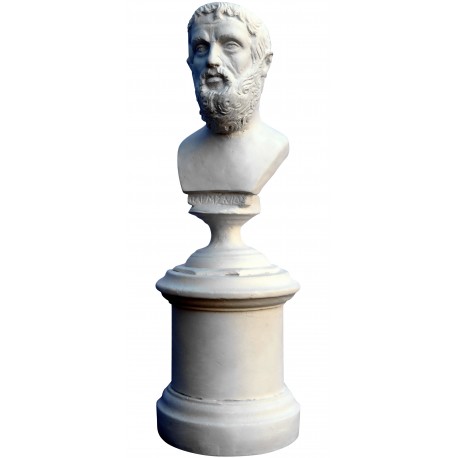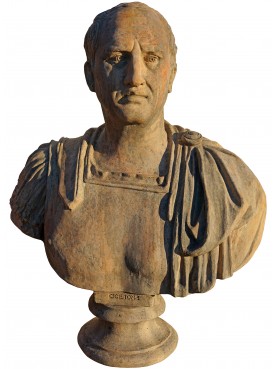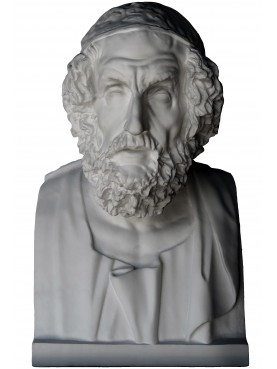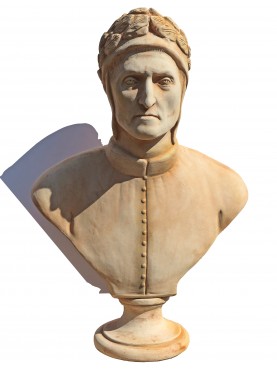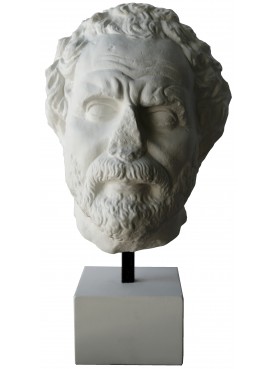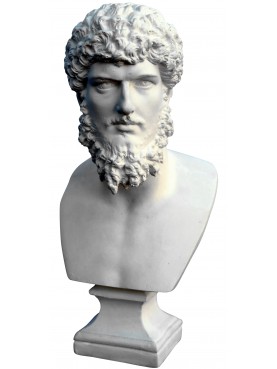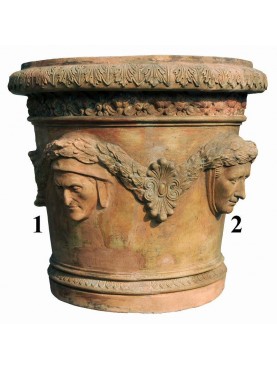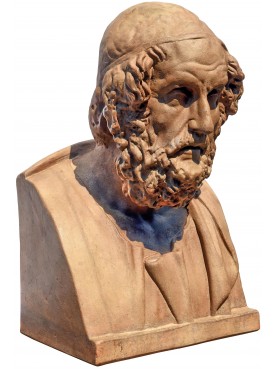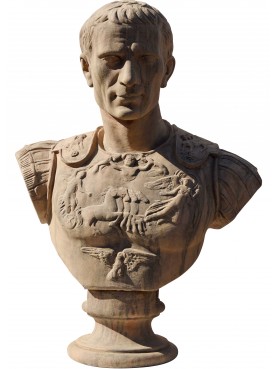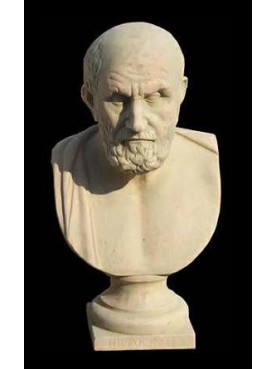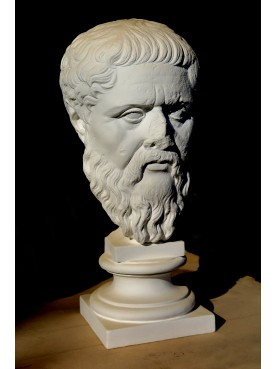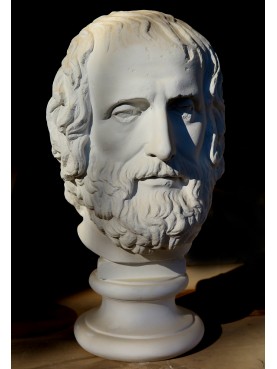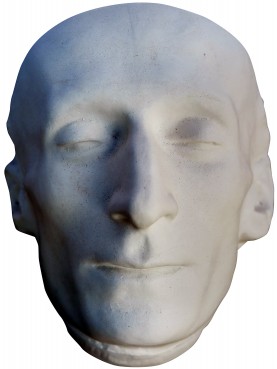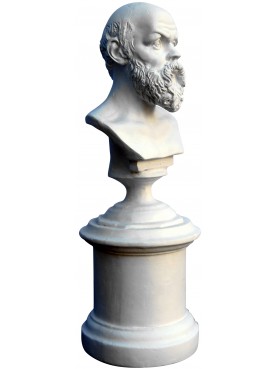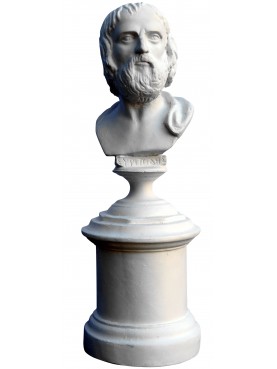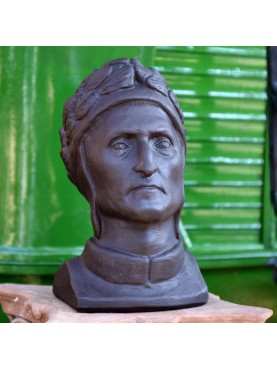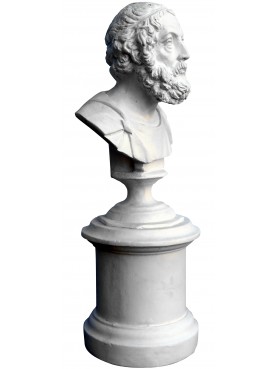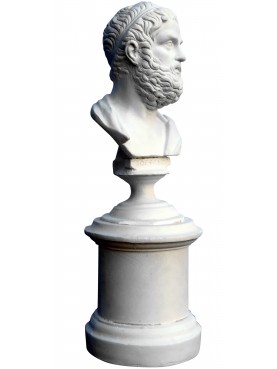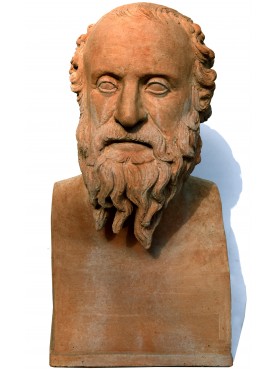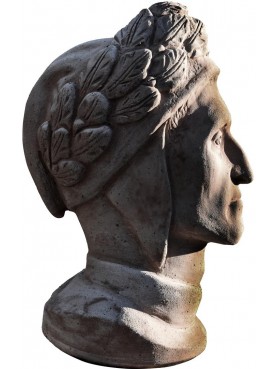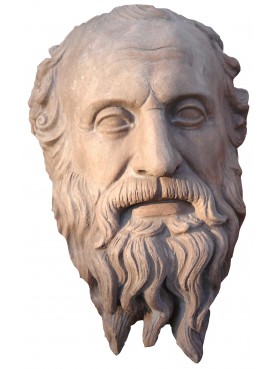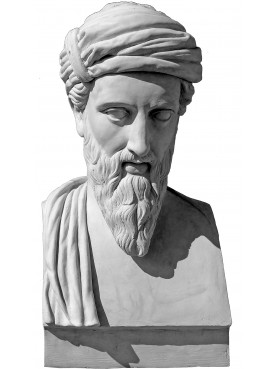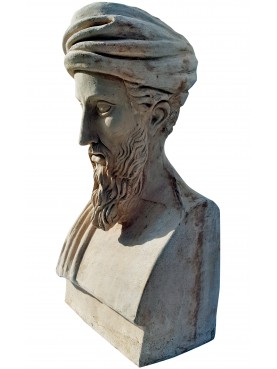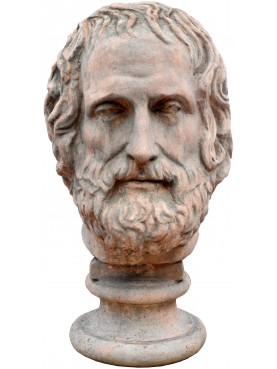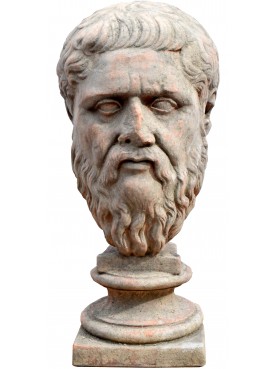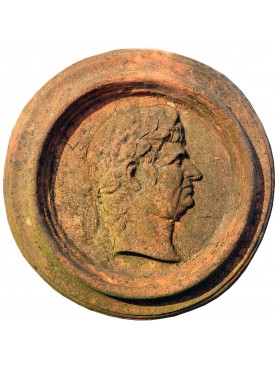Parmenides, little tanagre of the Greek ancient philosopher
Parmenides, little tanagre of the Greek ancient philosopher
12109
New
Parmenides of Elea (late sixth or early fifth century BC) was a pre-Socratic Greek philosopher from Elea in Magna Graecia (Greater Greece, included Southern Italy).
Small plaster cast bust "TANAGRE".
Hand made in Italy.
3 Available
Data sheet
| Height | 9.65 in | 24,5 cm |
| Width | 3.31 in | 8,4 cm |
| Depth | 3.54 in | 9 cm |
| Manufacturing | Made in Italy | |
| Material | Plaster cast |
More info
Parmenides of Elea (late sixth or early fifth century BC) was a pre-Socratic Greek philosopher from Elea in Magna Graecia (Greater Greece, included Southern Italy). He was the founder of the Eleatic school of philosophy. The single known work of Parmenides is a poem, On Nature, which has survived only in fragmentary form. In this poem, Parmenides describes two views of reality. In "the way of truth" (a part of the poem), he explains how reality (coined as "what-is") is one, change is impossible, and existence is timeless, uniform, necessary, and unchanging. In "the way of opinion", he explains the world of appearances, in which one's sensory faculties lead to conceptions which are false and deceitful.
Parmenides was born in the Greek colony of Elea (now Ascea), which, according to Herodotus,[3] had been founded shortly before 535 BC. He was descended from a wealthy and illustrious family.
His dates are uncertain; according to Diogenes Laërtius, he flourished just before 500 BC,[5] which would put his year of birth near 540 BC, but Plato has him visiting Athens at the age of 65, when Socrates was a young man, c. 450 BC,[6] which, if true, suggests a year of birth of c. 515 BC. He was said to have been a pupil of Xenophanes, and regardless of whether they actually knew each other, Xenophanes' philosophy is the most obvious influence on Parmenides.[8] Diogenes Laërtius also describes Parmenides as a disciple of "Ameinias, son of Diochaites, the Pythagorean"; but there are no obvious Pythagorean elements in his thought.
However, according to Sir William Smith, in Dictionary of Greek and Roman Biography and Mythology (1870):
Others content themselves with reckoning Parmenides as well as Zeno as belonging to the Pythagorean school, or with speaking of a Parmenidean life, in the same way as a Pythagorean life is spoken of; and even the censorious Timon allows Parmenides to have been a high-minded man; while Plato speaks of him with veneration, and Aristotle and others give him an unqualified preference over the rest of the Eleatics.

